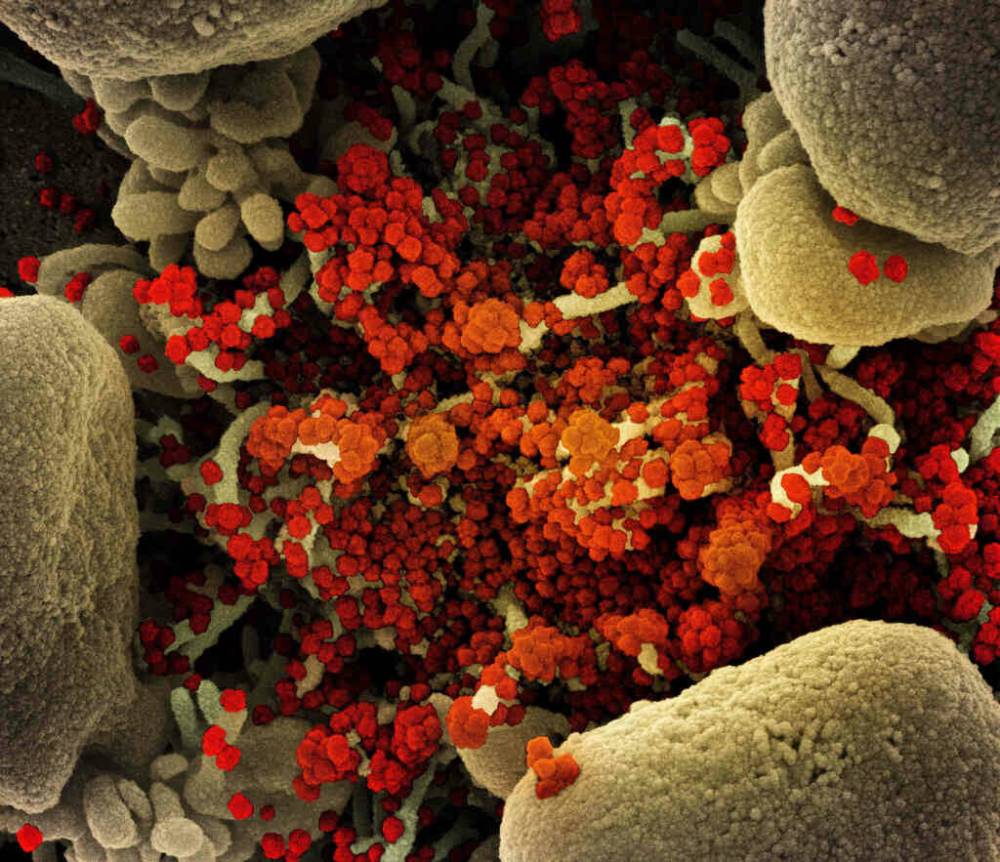Manitoba reports first omicron COVID infection Individual recently returned from southern African nation
Read this article for free:
or
Already have an account? Log in here »
To continue reading, please subscribe:
Monthly Digital Subscription
$19 $0 for the first 4 weeks*
- Enjoy unlimited reading on winnipegfreepress.com
- Read the E-Edition, our digital replica newspaper
- Access News Break, our award-winning app
- Play interactive puzzles
*No charge for 4 weeks then billed as $19 every four weeks (new subscribers and qualified returning subscribers only). Cancel anytime.
Read unlimited articles for free today:
or
Already have an account? Log in here »
Hey there, time traveller!
This article was published 06/12/2021 (863 days ago), so information in it may no longer be current.
Manitoba has detected its first case of the omicron COVID-19 variant, which has triggered widespread global concern, disrupted worldwide travel and sparked new quarantine rules in Canada.
The province is refusing to provide details of the case, beyond reporting it involves someone who recently returned to Manitoba from a southern African nation and is currently isolating and experiencing mild symptoms.
“Aggressive” contact tracing is underway, but a government spokesman refused to say when the infected person returned, whether they had been consistently complying with quarantine requirements, the health region they live in or the level of sequencing that revealed the presence of the B.1.1.529 variant strain, first reported just over a week ago in South Africa.

The individual had been in one of several countries in the African region now subjected to international travel bans.
There is some evidence the variant is more easily transmissible than the delta strain, which is currently dominant in Manitoba. But researchers don’t yet know whether omicron is more dangerous, whether it could cause more severe symptoms or how effective vaccines are against it.
And those unknowns mean Manitoba should do what it can to improve or maintain access to third doses, rapid tests and things such as effective ventilation and filtration in schools, said University of Manitoba epidemiologist Souradet Shaw.
“I think we just need to make sure that we’re doing the things that we’re already doing better, or at least that we’re doing them well. Are we actively giving people booster shots versus passively asking people to do it? Do we have, for instance, enough of a workforce to try to get vaccines to more vulnerable populations?” said Shaw, an assistant professor and Canada Research Chair in program science and global public health.
“It is quite early to see where it’s going to go, but we do know from previous experiences with the coronavirus that unfortunately, if omicron does take off here, we know that it’s going to hit people of colour, we know that it’s going to hit the poor, we know that it’s going to hit the vulnerable and if it takes off, it will probably take off in families.
Dr. Philippe Lagacé-Wiens, a medical microbiologist in Winnipeg, said he’s concerned that preliminary reports suggesting omicron infections may not be as severe as other strains could lead some people to let their guards down, particularly with holiday gatherings increasing in number.
“There’s a lot of unknowns. Knowledge is moving very fast, so we have to anticipate that it’s going to change quickly but we shouldn’t be lulled into complacency by belief that this disease is going to be any milder than prior variants until there’s solid evidence of it, he said.
“I actually worry a lot that people are tired, they’re sick of this pandemic — understandably so — and they’re going to grab on to any messaging that says this isn’t as bad…. We don’t know that and it would be dangerous to make that assumption.”
However, Manitobans shouldn’t panic, Lagacé-Wiens said.
“We do need to keep vigilant,” he said. “We need more information. We need to keep doing what we’re doing — testing, tracing, isolation, wearing your masks when you’re indoors, getting vaccinated.”
“We do need to keep vigilant… We need more information. We need to keep doing what we’re doing.” – Dr. Philippe Lagacé-Wiens
Omicron has been found elsewhere in Canada; Alberta has reported 11 cases, 10 of which were identified in returning travellers. The other was a household contact of a traveller.
Nazeem Muhajarine, a professor of community health and epidemiology at University of Saskatchewan, said while omicron has been linked to a dramatic surge in COVID-19 cases in South Africa, it’s too early to predict how it will spread in Canada, which has a much higher rate of vaccination.
What is clear is the uncertainty could pose complications for people who had been planning to spend the holidays abroad now, after Canada and a host of other countries have tightened border measures in response to the variant’s spread, said Muhajarine, warning international travellers risk getting tangled in testing and quarantine requirements.
— With files from The Canadian Press

Katie May
Reporter
Katie May is a general-assignment reporter for the Free Press.
History
Updated on Tuesday, December 7, 2021 4:13 PM CST: adds backlog numbers/ COVID numbers
Updated on Tuesday, December 7, 2021 6:52 PM CST: Adds full writethru, additional photo, changes formatting.








